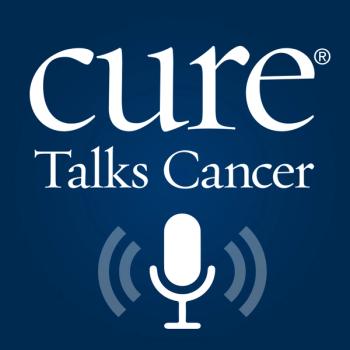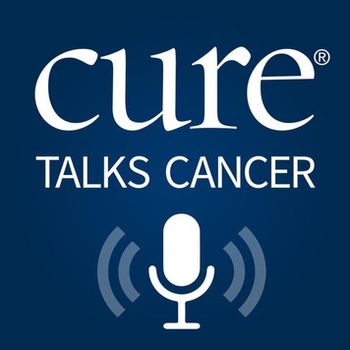
Patients with metastatic non–clear cell renal cell carcinoma who receive immune checkpoint inhibitor–based regimens as a first treatment option may have improved survival, versus those who receive select targeted therapies.

Ryan McDonald, Associate Editorial Director for CURE®, has been with the team since February 2020 and has previously covered medical news across several specialties prior to joining MJH Life Sciences. He is a graduate of Temple University, where he studied journalism and minored in political science and history. He considers himself a craft beer snob and would like to open a brewery in the future. During his spare time, he can be found rooting for all major Philadelphia sports teams. Follow Ryan on Twitter @RMcDonald11 or email him at [email protected].

Patients with metastatic non–clear cell renal cell carcinoma who receive immune checkpoint inhibitor–based regimens as a first treatment option may have improved survival, versus those who receive select targeted therapies.

The Food and Drug Administration has granted the investigational therapy asciminib a breakthrough therapy designation for the treatment of certain adults with Philadelphia chromosome-positive chronic myeloid leukemia. The designation may allow for expedited review of the drug.

The Food and Drug Administration has granted an accelerated approval to Libtayo for the treatment of patients with advanced basal cell carcinoma, a type of skin cancer, who were previously treated with a hedgehog pathway inhibitor (HHI) or for whom an HHI was not appropriate.

On social media, CURE® recently asked its readers to share what movies, books and TV shows helped them get through their cancer treatments.

Results of a trial assessing endoxifen in patients with breast cancer in Australia were positive enough for the manufacturer to stop the trial before it was scheduled to be completed. The drug’s manufacturer will now accelerate its development in the U.S.

CURE® compiled a roundup of five recent pieces of diet and exercise-related news and updates that patients with cancer may have missed.

CURE® compiled a roundup of several recent stories that cancer caregivers may have missed.

The Food and Drug Administration on Friday approved Breyanzi, a cell-based gene therapy, for the treatment of adults with certain types of large B-cell lymphoma.

The Food and Drug Administration has granted an accelerated approval to Ukoniq for the treatment of certain adults with previously treated relapsed or refractory marginal zone lymphoma and relapsed or refractory follicular lymphoma.

The Food and Drug Administration has given the greenlight for Bellicum Pharmaceuticals to continue enrolling patients on a trial assessing a novel therapy patients with previously treated metastatic pancreatic or prostate cancer.

In this episode of the “CURE® Talks Cancer” podcast, we spoke with a patient who was blindsided by her stage 3 ovarian cancer diagnosis several years ago. We talk about how she spent months going from specialist to specialist before finally receiving her diagnosis, and why she dedicates much of her time to advocating for others.

The Food and Drug Administration has granted an accelerated approval to Tepmetko for the treatment of adults with metastatic non-small cell lung cancer (NSCLC) whose disease harbors mesenchymal-epithelial transition (MET) exon 14 skipping alterations.

Treatment with sotorasib induced a 6.8-month median progression-free survival in patients with KRAS G12C–mutated advanced non-small cell lung cancer.

Dustin Diamond, known best for his role as “Screech” in “Saved by the Bell,” has died after receiving a stage 4 lung cancer diagnosis a few weeks ago.

On social media, CURE® recently asked its readers to share the best advice they’ve received during their cancer journey.

Treatment with Opdivo (nivolumab) in combination with the novel therapy BMS-986012 demonstrated a median overall survival of 18.7 months and a median progression-free survival of 2.1 months among a group of patients with relapsed/refractory small cell lung cancer.

The FDA’s fast track designation for toripalimab to treat patients with mucosal melanoma may lead to an accelerated approval of the novel therapy.

In this episode of the “CURE Talks Cancer” podcast, we spoke with a patient who is receiving treatment for grade 3 triple-negative breast cancer. We talk about how a nurse’s question during a routine physical “saved her life”, and a kindness challenge she started to help lift her up during the dark days of treatment.

Here is a list of some recent trials that launched within the cancer space in January.

On social media, CURE® recently asked its readers to share what they wished people without cancer could understand about their experiences with the disease.

CURE® compiled a roundup of several recent news and updates involving quality of life improvements that patients with cancer may have missed.

CURE® compiled a roundup of five recent pieces of COVID-19 news and updates that patients with cancer may have missed.

The priority review will focus on retifanlimab for the treatment of certain adult patients with locally advanced or metastatic squamous cell carcinoma of the anal canal who did not tolerate platinum-based chemotherapy. Currently, according to Incyte, there are no approved treatments for this patient population.

“Along with a tolerable safety profile and supportive quality of life, these final efficacy results demonstrate the clinical benefit of (Tibsovo) in (previously treated patients with IDH1-mutant cholangiocarcinoma), for which there is an urgent need for new therapies,” said an expert from Massachusetts General Hospital, who presented the data.

The combination of Inlyta (axitinib) and the synthetic hormone octreotide acetate failed to significantly improve progression-free survival, compared to placebo with the synthetic hormone. However, the results indicated the Inlyta-based combination did improve disease response in patients versus the placebo-based combination.

In the final analysis of the phase 2 TASCO1 trial, patients within the Lonsurf and Avastin arm reached a median overall survival of 22.31 months compared with 17.67 months in the Xeloda and Avastin arm.

“This is the longest survival seen in a phase 3 study of advanced liver cancer,” lead study author Dr. Richard S. Finn, of the UCLA Jonsson Comprehensive Cancer Center, said in a virtual presentation of the data.

The data in the study presented at the ASCO Gastrointestinal Cancers Symposium demonstrated that while rare, stage 4 gastrointestinal stromal tumors often spread to the liver.

A group of patients with gastrointestinal cancers reported that a novel artificial intelligence-based search tool made it easier for them to find and understand cancer clinical trials. The tool, according to study authors, would not only help with trial accrual, but could also help improve trial diversity.

The Food and Drug Administration has had a busy winter so far, approving several new agents to treat a variety of cancers. Here are seven recent approvals that patients with cancer may have missed.